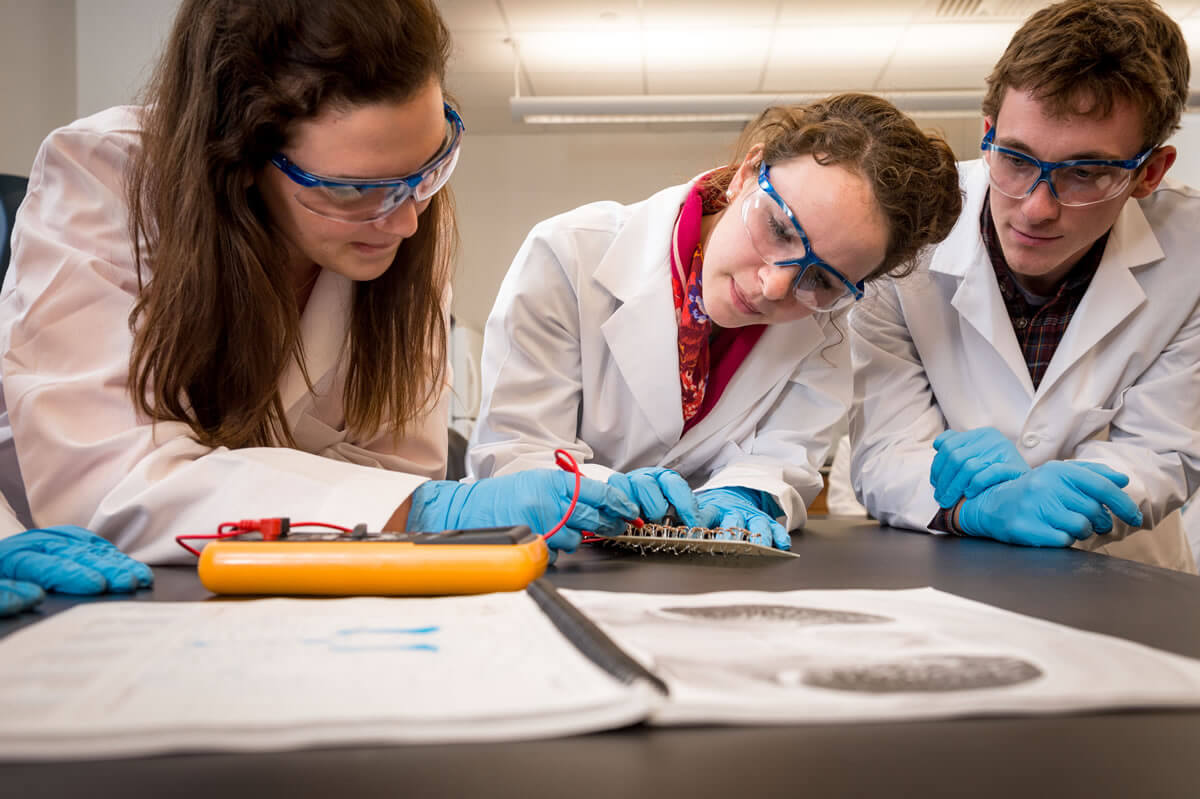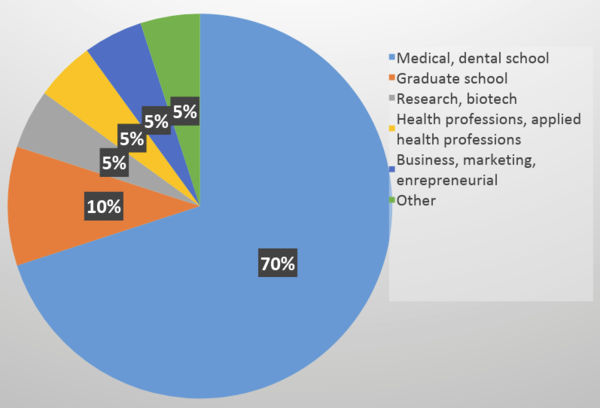About

Welcome to the Neuroscience and Behavior major at the University of Notre Dame. Motivated by the clear benefit of developing programs that prepared students for careers in the challenging interdisciplinary fields represented by modern neuroscience, the Notre Dame neuroscience community introduced the Neuroscience and Behavior major during the 2014-15 academic year. We recognized that traditional psychology and biology perspectives needed to be integrated and also expanded to include knowledge residing in diverse range of the scientific disciplines of computational science, biochemistry, communication sciences, and physics (and more!). Hence we initiated the Neuroscience and Behavior major. To accommodate a wide range of student academic interests, the Neuroscience and Behavior major is offered as either a B.A. and B.S. degree.
Both B.A. and B.S. Neuroscience and Behavior majors share a common set of core courses. The core courses of the major then segue to the upper division elective courses designed to provide our students an opportunity to delve deeper into the specialized areas of most interest to them, ranging from current knowledge and inquiry in basic biological and psychological mechanisms to the study and treatment of various neurological and psychological disorders. Along the way, students have many opportunities and are encouraged to enrich their learning with service and research experiences.
Futures with a NSBH Major

The NSBH major leads to a diverse range of future careers and opportunities. Below is a snapshot of what the 2018 NSBH majors went on to do after graduation. This graph is not representative of every possible career path for NSBH majors, but it provides a good picture of the diversity of what our students do.
In the Class of 2018, ~70% of students planned to attend medical or dental school, with about half planning on taking a gap year. ~10% of students planned to attend graduate school for Ph.D., M.D./Ph.D., law, or M.S. ~5% pursued research or biotechnology. ~5% pursued health professions such as speech therapy, autism specialist, physical therapy, physician assistant, and nursing. ~5% went in to business, marketing, and entrepreneurship with careers such as actuarial analysts or private equity consultants. ~5% pursued other paths, such as the Navy, Alliance for Catholic Education, and Teach for America.